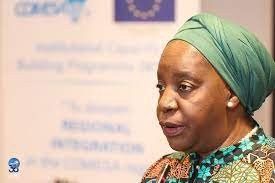THE impact of globalisation on culture has generated criticism in some quarters, as digital developments take place at a remarkable pace.
In the past decade, the number of people with access to mobile phones has increased, driven by declining costs of handsets.
Africa has undergone a revolution with regards to the manner in which information is shared. The world continues to marvel as technologies make life easy.
Today, life is easier due to the sophisticated technologies surrounding us, which aid globalisation. Through globalisation, western norms and practices have spread worldwide.
They have dominated the way we behave, and they have led to a gradual decline in the use of vernacular languages.
This has generated criticism with regards to the impact of technology on African cultures. But in the absence of modern science and technologies, Africans developed important products and services, such as distilling alcohol and curing diseases.
Keep Reading
- Students develop mobile app to support SRHR learning
- Cops arrested for conning ICT perm sec
- Hwange communities tackle human-wildlife conflicts, crime
- Students develop mobile app to support SRHR learning
This is why today; some argue that western technologies have reduced the value of African cultural knowledges and teachings.
These critics say young people are particularly vulnerable to the growing importance of technology.
Traditionally, Africans have been conservative to discuss or share many issues considered taboo.
But modern technologies have allowed young people to access them.
Through technology, Africans have opened themselves up to other cultures, ideas and values. Technology has also generally made it easier for people on the continent to communicate and interact.
On the negative side, increased relevance of technology has led to the introduction of values that clash with existing indigenous African values. In this regard, Africa must have institutions for vernacular translation. For instance, governments may say no products or services should come to Africa without a local translation. African governments should demand that local internet services translate information into local languages.
To achieve this, training and skills will have to be transmitted to as many people as possible across the continent.
Let us protect the African identity and African languages by making sure Africans dominate the African cyberspace with their cultures.
- Mutisi is the CEO of Hansole Investments (Pvt) Ltd. He is the current chairperson of Zimbabwe Information & Communication Technology, a division of Zimbabwe Institution of Engineers.





